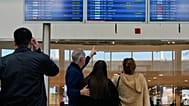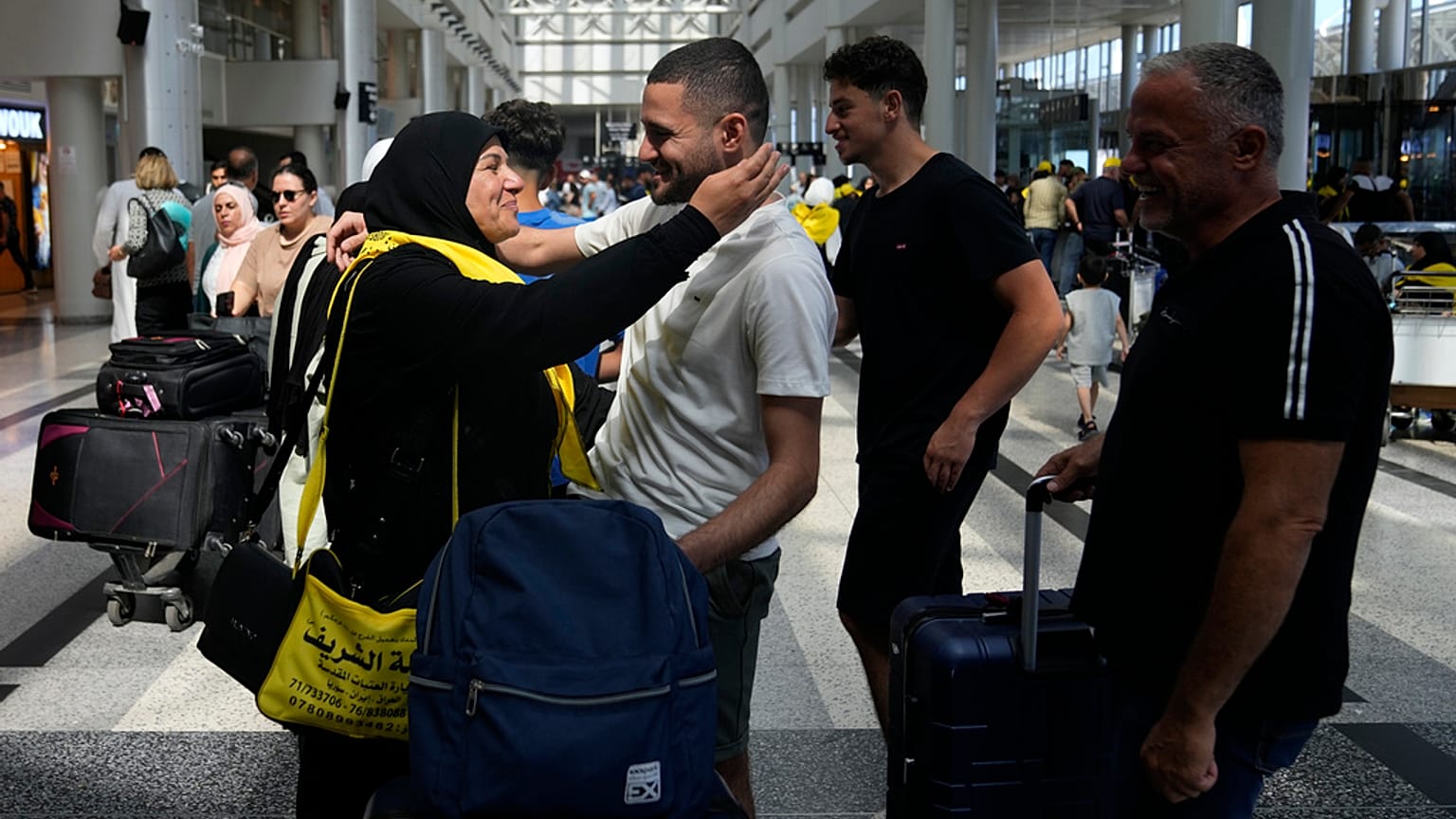Lebanon is expecting a retaliatory strike from Israel after a missile hit a football field in the town of Majdal Shams in the Israeli-annexed Syrian Golan Heights over the weekend, killing 12 children and adolescents.
Several flights to and from Beirut's international airport were cancelled this week as tensions between Israel and Hezbollah escalated, with several carriers citing safety and security risks.
 ADVERTISEMENT
ADVERTISEMENT
 ADVERTISEMENT
ADVERTISEMENT
Summer air traffic continues as Lebanese expats greet their loved ones coming to spend the summer in Lebanon. For many, the imminent threat of war is something they are used to, says 71-year-old Mohammad Mokhalid.
He came from the southern Lebanese village of Jarjoug to pick up his daughter and grandchildren from Beirut's Rafic Hariri Airport.
"We are not scared by the situation because we are used to it. When there are airstrikes, we hear them regularly," Mokhalid said.
Lebanon is expecting a retaliatory strike from Israel after a missile hit a football field in the town of Majdal Shams in the Israeli-annexed Syrian Golan Heights over the weekend, killing 12 children and adolescents.
Israel accused the Lebanese militant group Hezbollah of carrying out the strike, to which Hezbollah issued a rare denial.
The incident has heightened fears that the nearly 10-month low-boiling conflict between Hezbollah and Israeli forces in the border region could escalate into an all-out war, kicking off a flurry of diplomatic efforts to keep the situation under control.
Some European airlines have canceled flights in light of the increased tensions.
Frankfurt-based Lufthansa Group said on Monday that three of its airlines — Lufthansa, Swiss, and Eurowings — decided to suspend flights to and from Beirut "up to and including" 5 August.
Air France also suspended some of its flights, while other airlines changed their schedules.
Lebanon's Middle East Airlines delayed some flights to arrive Tuesday morning instead of at night, the carrier said, "due to technical reasons related to the distribution of insurance risks."
MEA chief Mohamad El-Hout, however, downplayed fears following a meeting with caretaker Prime Minister Najib Mikati. The state-run National News Agency said Hout had "denied that Rafik Hariri Airport had received any threats or information from any source that the airport would be attacked."
He pointed out that Lufthansa Group had also canceled flights to Lebanon in the early months of the war in Gaza and the border conflict in Lebanon.
Escalating tension between Israel and Hezbollah
Even before the deadly incident, rhetoric and fears of a full-blown conflict had been intensifying, but it has had relatively little impact on the summer tourist season, during which tens of thousands of Lebanese working or studying abroad typically come to visit their families, filling up restaurants and beach clubs.
Israel and the Lebanese militant group have traded near-daily strikes since the war in Gaza erupted on October 7 following Hamas’ surprise attack on southern Israel.
The Beirut airport reported that 406,396 passengers arrived in June compared to 427,854 arrivals in the same period in 2023, a decrease of 5%.
It also recorded 300,362 people leaving the country in June, compared to 280,366, an increase of 7%.














